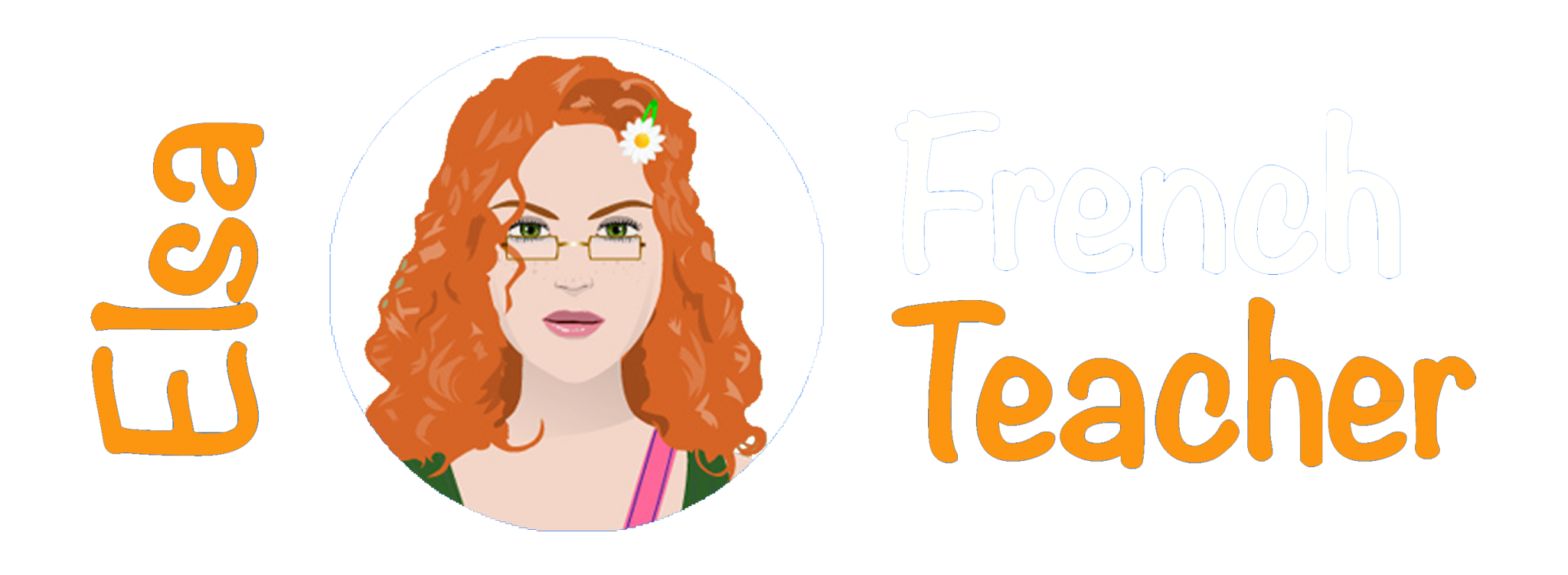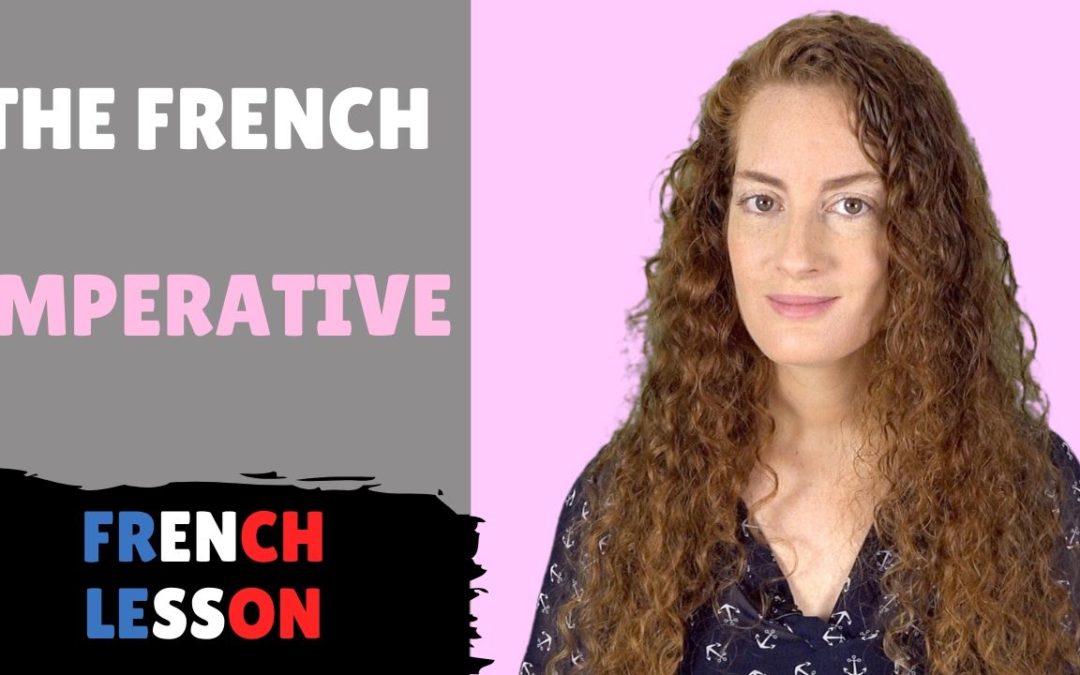

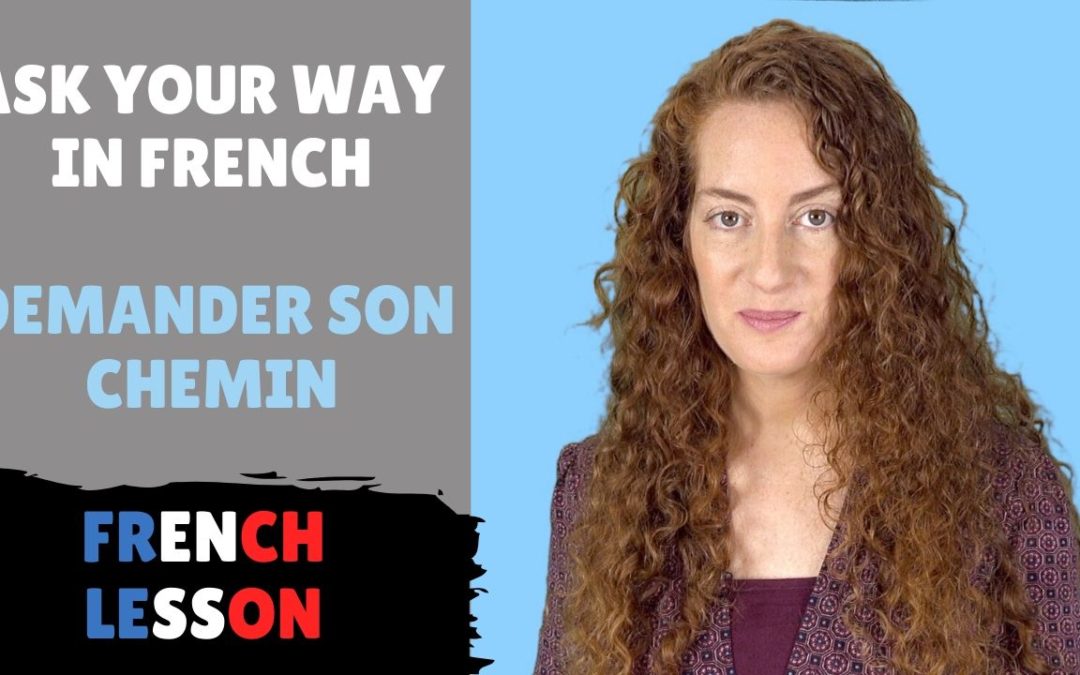
Ask your way in French
Ask your way in French
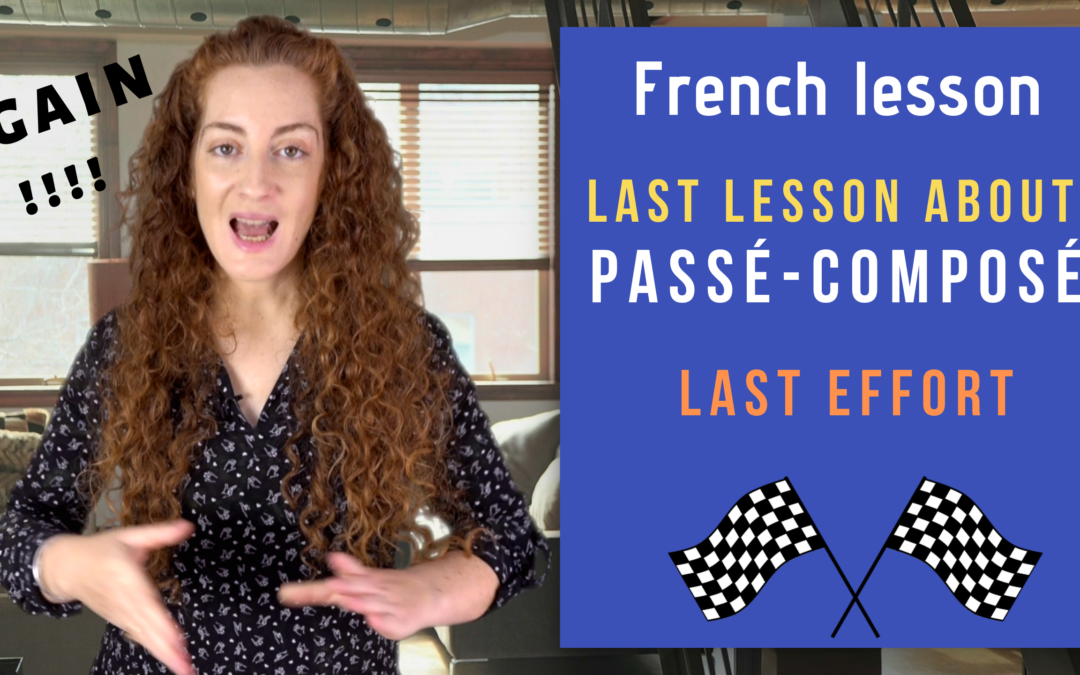
Passé-composé (part 3)
Passé-composé (part 3)
LE PASSÉ-COMPOSÉ, verbes spéciaux
Comme nous l’avons vu dans les vidéos précédentes, il y a des verbes qui utilisent l’auxiliaire être au passé-composé et d’autres l’auxiliaire avoir.
Ça, vous le savez déjà. Maintenant j’aimerais vous parler des cas particuliers :
Il y a des verbes qui utilisent l’auxiliaire être en général et l’auxiliaire avoir dans certains cas !
A. Verbes qui se conjuguent avec l’auxiliaire être et avoir :
Dans ma dernière vidéo je vous ai donné la liste des verbes qui se conjuguent avec ETRE :
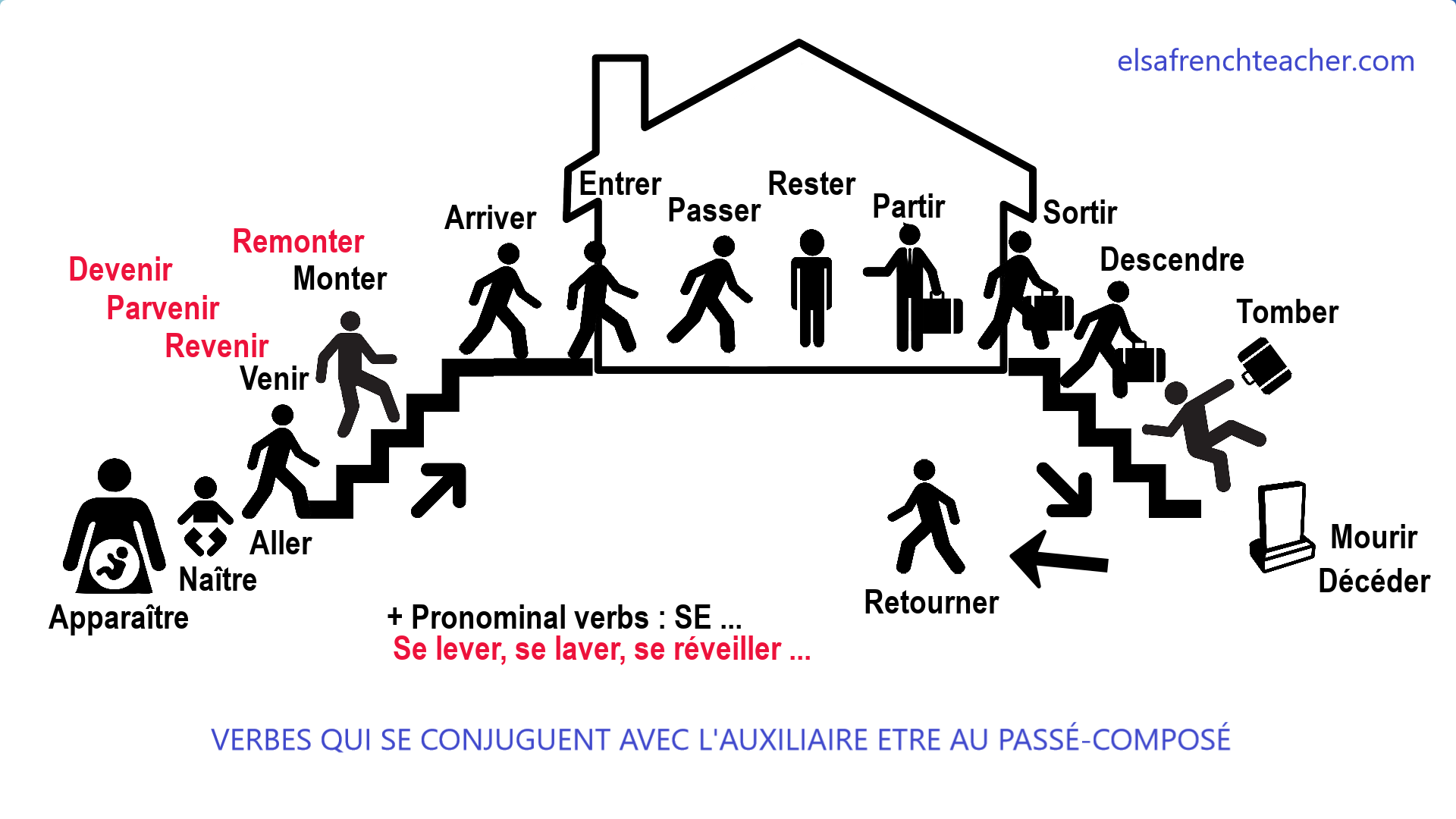
Mais certains d’entre eux utilisent l’auxiliaire être mais aussi l’auxiliaire avoir dans certains cas.
Ce sont ces 6 verbes : monter, descendre, rentrer, passer, sortir, retourner.

Ils prennent l’auxiliaire avoir lorsqu’ils sont suivis d’un COD : complément d’objet direct.
B. Rappel : objets directs et indirects
Si vous avez oublié ce qu’est un complément d’objet direct et indirect, voici un exemple.
J’ai donné une pomme à l’enfant.
- « À l’enfant » est un objet indirect (COI) car on peut dire : J’ai donné une pomme A QUI ? A l’enfant (il y a la préposition à avant l’enfant)
- « Une pomme » est un objet direct (COD) car on peut dire : J’ai donné QUOI ? Une pomme (il n’y a pas de préposition avant une pomme)
C. Analyse précise des 6 verbes spéciaux :
MONTER
Le verbe monter s’utilise avec être :
Je suis monté.
Mais, quand on ajoute un objet direct, il prend l’auxiliaire avoir :
J’ai monté l’escalier. J’ai monté les escaliers.
Tu as monté la vieille lampe dans le grenier.
Il a monté l’Everest l’année dernière.
Nous avons monté le meuble très rapidement.
Vous avez monté le son de la télévision.
Elle a monté ce cheval pendant deux ans.
- Vous pouvez voir le complément d’objet direct après le verbe.
RENTRER
Le verbe rentrer s’utilise avec être :
Je suis rentré hier de mon voyage au Maroc.
Mais, quand on ajoute un objet direct, il prend l’auxiliaire avoir :
J’ai rentré les poubelles.
Tu as rentré ton vélo dans le garage.
Il a rentré le ballon dans le but.
Ils ont rentré leur voiture dans le mur.
PASSER
Le verbe passer s’utilise avec être :
Je suis passé devant chez toi hier.
Mais, quand on ajoute un objet direct, il prend l’auxiliaire avoir :
J’ai passé un examen très difficile hier.
Tu as passé ton temps à dormir.
Elle a passé l’aspirateur dans le salon.
Vous avez passé une excellente journée.
SORTIR
Le verbe sortir s’utilise avec être :
Elles sont sorties hier soir.
Mais, quand on ajoute un objet direct, il prend l’auxiliaire avoir :
J’ai sorti les poubelles.
Tu as sorti la voiture du garage.
Le magicien a sorti un pigeon de son chapeau.
Il nous a sorti une belle blague au dîner.
Vous avez sorti le chien ce matin ?
L’écrivain a sorti son livre ce matin. Être mis dans les circuits de distribution, de commercialisation
DESCENDRE
Le verbe descendre s’utilise avec être :
Je suis descendue pour dîner.
Mais, quand on ajoute un objet direct, il prend l’auxiliaire avoir :
J’ai descendu mon sac du grenier.
Tu as descendu Marc à Marseille.
Le cowboy a descendu deux hommes pendant une bagarre.
RETOURNER
Le verbe sortir s’utilise avec être :
Elle est retournée à Paris après deux ans passés à Marseille.
Mais, quand on ajoute un objet direct, il prend l’auxiliaire avoir :
J’ai retourné le matelas.
Tu as retourné ta chemise.
Il a retourné la lettre à l’expéditeur.
Les voleurs ont retourné tout l’appartement.
Voilà, j’espère que vous avez compris comment fonctionnent ces 6 verbes au passé-composé.
Vous n’aurez pas cette complexité avec les autres verbes qui, eux, n’acceptent qu’un seul auxiliaire au passé-composé.
Ouf !
—————————————————————————————————————————-
ENGLISH
As we saw in the previous videos, there are verbs that use the auxiliary ETRE in the passé-composé and others the auxiliary AVOIR.
You already know that. Now, I would like to talk to you about special cases:
some verbs use the auxiliary ETRE in general and the auxiliary AVOIR in some cases!
A. Verbs that use ETRE and AVOIR
In my last video I gave you the list of verbs that conjugate with ETRE.

But some of them accept both auxiliaries depending on the situation.
Here are the 6 verbs :
Monter,rentrer, passer, sortir, descendre, retourner.

They take the auxiliary AVOIR when they are followed with a direct object.
B. Direct and indirect objects
If you forgot what are direct and indirect objects, I will show you a sentence where there is a direct and indirect object:
J’ai donné une pommeà l’enfant.
> « à l’enfant » is an indirect object because we can say:
I gave an apple TO WHO? J’ai donné une pomme A QUI?
A l’enfant
(there is the preposition “à” before the child)
> « Une pomme » is a direct object because we can say:
I gave WHAT? J’ai donné QUOI?
Une pomme
(there is no preposition before une pomme)
C. Analyse of the 6 special verbs
MONTER
This verb is conjugated with ETRE:
Je suis monté.
I went upstairs.
But, when we add a direct object, we use the auxiliary avoir:
J’ai monté l’escalier. J’ai monté les escaliers. I went up the stairs.
Tu as monté la vieille lampe dans le grenier. You took the old lamp up in the attic.
Il a monté l’Everest l’année dernière. He climbed Everest last year.
Nous avons monté le meuble très rapidement. We assembled the furniture very quickly.
Vous avez monté le son de la télévision. You turned the sound of the TV up.
Elle a monté ce cheval pendant deux ans. She mounted this horse during two years.
You can see the direct object after the verb.
RENTRER
This verb is conjugated with ETRE:
Je suis rentré hier de mon voyage au Maroc.
I returned yesterday from my trip to Morocco.
But, when we add a direct object, we use the auxiliary avoir:
J’ai rentré les poubelles. I took the trash out.
Tu as rentré ton vélo dans le garage. You brought your bike in the garage.
Le chat a rentré ses griffes. The cat withdrawn his claws.
Ils ont rentré leur voiture dans le mur. They crashed their car into the wall.
PASSER
This verb is conjugated with ETRE:
Je suis passé devant chez toi hier.
I walked past your house yesterday.
But, when we add a direct object, we use the auxiliary avoir:
J’ai passé un examen très difficile hier. I had a very difficult exam yesterday.
Tu as passé ton temps à dormir. You spent your time sleeping.
Elle a passé l’aspirateur dans le salon. She vacuumed in the living room.
Vous avez passé une excellente journée. You had a great day.
SORTIR
This verb is conjugated with ETRE:
Elles sont sorties hier soir. They went out last night
But, when we add a direct object, we use the auxiliary avoir:
J’ai sorti les poubelles. I took the trash out.
Tu as sorti la voiture du garage. You took the car out of the garage.
Le magicien a sorti un pigeon de son chapeau. The magician pulled a pigeon out of his hat.
Il nous a sorti une belle blague au dîner. He gave us a nice joke at dinner.
Vous avez sorti le chien ce matin? Did you take the dog out this morning?
L’écrivain a sorti son livre en février. The writer has released his book in February.
DESCENDRE
This verb is conjugated with ETRE:
Je suis descendue pour dîner. I went downstairs for dinner.
But, when we add a direct object, we use the auxiliary avoir:
J’ai descendu mon sac du grenier. I took my bag down from the attic.
Tu as descendu Marc à Marseille. You brought Marc down to Marseille.
Le cowboy a descendu deux hommes pendant une bagarre. The cowboy shot two men down during a fight.
RETOURNER
This verb is conjugated with ETRE:
Elle est retournée à Paris après deux ans passés à Marseille.
She returned to Paris after two years in Marseille.
But, when we add a direct object, we use the auxiliary avoir:
J’ai retourné les matelas. I turned the mattresses over.
Il a retourné la lettre à l’expéditeur. He returned the letter to the sender.
Les voleurs ont retourné tout l’appartement. The robbers turned the whole apartment upside down.
Voilà, I hope you’ve understood how these 6 verbs work in the passé-composé.
You will not find this complexity with the other verbs, because they only accept one auxiliary in the passé-composé.
[activecampaign form=11]

Passé-composé (part 2)
Passé-composé (part 2)
LE PASSÉ-COMPOSÉ, accord et négation
In the previous video, we have seen that the passé-composé has two auxiliaries: ETRE and AVOIR.
Certain verbs use ETRE, the rest is conjugated with AVOIR.
Ans that after the auxiliairy there is a participe-passé (past particile)
(If you do not understand this, I advise you to watch my previous video, https://elsafrenchteacher.com/french_passe_compose/.)
Today I am going to tell you about something special: the agreement of the participe-passé with the subject according to the auxiliary.
Do not go! I know it sounds very complicated but I will explain it in a very simple way, wait and see.
1. Participe-passé and AVOIR auxiliary
First of all, when you have the auxiliary AVOIR you can remember that the participle-past does not change.
For example, if you conjugate the verb PRENDRE in the passé-composé, it will be:
J’ai pris le bus.
I took the busTu as pris le train.
Il a pris son vélo.
Nous avons pris l’avion.
Vous avez pris le métro.
Elles ont pris le tram.
You notice that the auxiliary « pris » does not change. It remains the same even if the subject changes. It works like that with the auxiliary AVOIR.
You can imagine that if I tell you this, it is because with the auxiliary ETRE it’s different ?
2. Participe-passé and ETRE et auxiliary
When we use the auxiliary ETRE, that is to say with certain verbs only (if you do not know what are these verbs watch my previous video) … so with these verbs the participe-passé must agree with the subject!
Par exemple, on écrira :
Il est monté dans le bus
He got on the busElle est montée dans le bus
Ils sont montés dans le bus.
Elles sont montées dans le bus.
- We add an « e » at the end of the participle when the subject is a woman.
- We add an « s » when the subject is plural.
- We add an « e » and an « s » when the subject and feminine plural.
This is because we have the auxiliary ETRE, and it’s like that with all the verbs that use this auxiliary.
For example : Elle est descendue du bus et elle s’est promenée dans la ville.
She got off the bus and she walked around the city.
You are going to tell me that it is a detail of the writing because when we speak, we do not hear the difference between « il est descendu » et « elle est descendue. »
That’s right. However, sometimes we hear the difference for some verbs:
Il est mort / elle est morte
He/She diedIl s’est inscrit / elle s’est inscrite
He/She enrolled, registered
We hear a difference in the feminine form because we add an « e » after a consonant so we have to pronounce this consonant.
But this is very rare, so for now you can memorize that this rule is especially useful when you write (and in the passive form but it is another lesson).
Voilà! I hope you have understood the difference in the agreement of the two auxiliaries.
I would like to finish with a rule I did not speak about last time, it is the position of the negation with the passé-composé.
3. Négation au passé-composé
You know that in the present the negation surrounds the verb.
Par exemple : Elle ne prend pas le bus quand elle va au musée.
She does not take the bus when she goes to the museum.
In the past tense, the negation surrounds the auxiliary.
Elle n’a pas pris le train pour aller au musée.
She did not take the train to the museum.
The auxiliary is after the negation.
There is an apostrophe in front of the auxiliary because it starts with a vowel. It’s the same with ETRE.
Elle n’est pas allée au théâtre aujourd’hui.
She did not go to the theater today.
When there is no vowel, there is no apostrophe:
Nous ne sommes pas allés au concert.
We did not go to the concert.
Voilà! The lesson is finished, I hope you enjoyed it!
A bientôt ?
[activecampaign form=11]
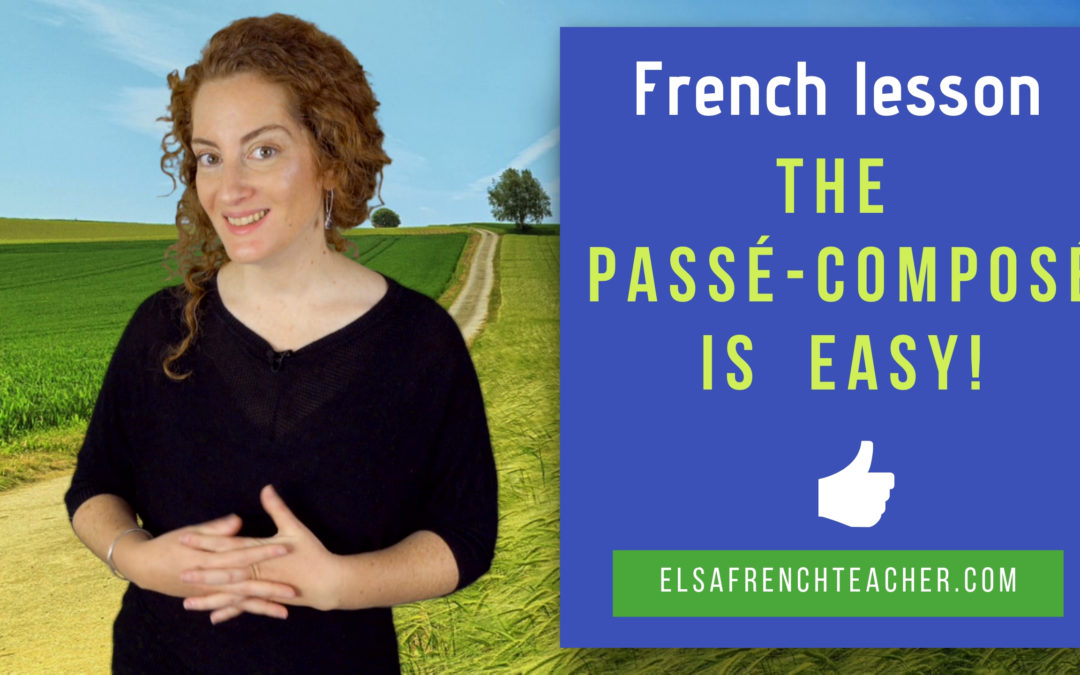
The French passé-composé
The French passé-composé
EXERCICE :
Can you translate this text in French?
Yesterday, I got up at eight, dressed, ate my breakfast, and went out.
I went to the park and ran for 20 minutes. Then I walked around and walked to the kiosque.
There, I bought a magazine, I read a little I drunk a bottle of water and I went home by bus.
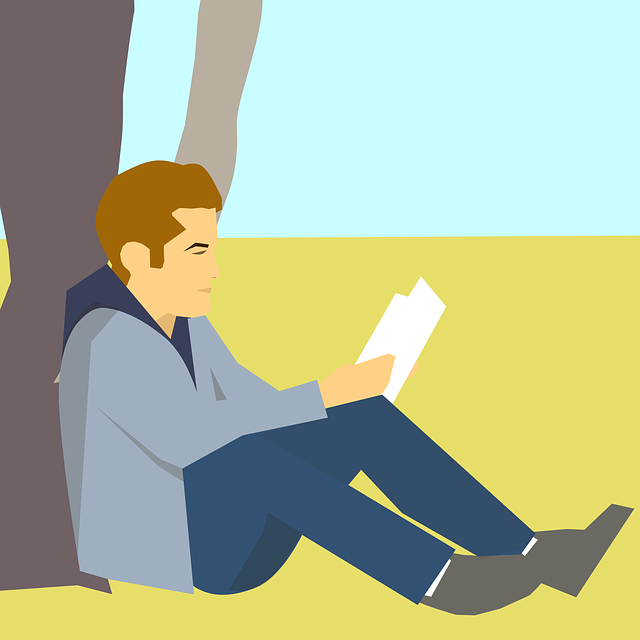
If it's too hard you can complete the sentences
Hier, je ………………… (se lever) à huit heures, je ………………… (s’habiller), j’ ………………… (manger) mon petit-déjeuner et je ………………… (sortir). Je ………………… (aller) au parc et j’ ………………… (courir) 20 minutes. Ensuite, je ………………… (se promener) et j’ ………………… (marcher) jusqu’au kiosque. Là, j’ ………………… (acheter) un magazine, j’ ………………… (lire) un peu, j’ ………………… (boire) une bouteille d’eau et je ………………… (rentrer) chez moi en bus.
Here are the answers 🙂
Hier, je me suis levé à huit heures, je me suis habillé, j’ai mangé mon petit-déjeuner et je suis sorti.
Je suis allé au parc et j’ai couru 20 minutes. Ensuite, je me suis promené et j’ai marché jusqu’au kiosque.
Là, j’ai acheté un magazine, j’ai lu un peu, j’ai bu une bouteille d’eau et je suis rentré chez moi en bus.
THE PASSÉ-COMPOSÉ
The passé-composé is a compound tense as the name suggests. It means that it has two parts.
This is very important because if you do not have two parts you are sure that it is not the passé-composé.
What are these two parts?
THE AUXILIARY + PARTICIPE-PASSE
When you start learning this tense and you make sentences with it, you often forget the auxiliary. So be careful!
1. The auxiliary
There are 2 possible choices for the auxiliary: the auxiliary ETRE and the auxiliary AVOIR.
How to choose?
Well, you have to know that some verbs use AVOIR and other ETRE.
1.1. The auxiliary avoir
In fact, the majority of verbs use the auxiliary AVOIR. This means that you have the verb conjugate to the present before the past-participle.
(Normally you already know the verb to have in the present. If not, you must review the present before learning this lesson because it is very important to know your basics before moving forward in learning. lesson about the present)
We get this :
J’AI
TU AS
IL A
NOUS AVONS + PARTICIPE-PASSE
VOUS AVEZ
ILS ONT
Here are some examples of verbs conjugated in the passé-composé:
J’ai visité la ville, tu as pris le bus, tu m’as retrouvé, nous avons mangé au restaurant.
1.2. The auxiliary être
So you understand that it’s easy: most verbs use the verb AVOIR in the present as an auxiliary.
But, some verbs are different and use the verb ETRE in the present as an auxiliary.
We get :
JE SUIS
TU ES
IL EST
NOUS SOMMES + PARTICIPE-PASSE
VOUS ETES
ILS SONT
What are the verbs that use the auxiliary ETRE?
This list has changed a lot in the history of the French language and stabilized in the 17th century.
– Today we have a list of 16 verbs that you must memorize:
They are often called « movement verbs » but not all movement verbs are in this list. For example, “marcher” is used with AVOIR. So I advise you to just memorize this list.
– In this list we also have verbs built from these 16 verbs, for example: revenir, parvenir, devenir, repasser, remonter etc.
– And finally all the pronominal verbs (reflexive) : all the verbs whose INFINITIVE form starts with SE.
For example: se lever, se laver, se promener, se réveiller etc. (To learn more about the reflexive verbs, read my article).
We get :
Je me suis levée, tu t’es promené, on s’est perdus.
2. The participe-passé
To conjugate in the passé-composé, we also need to choose the form of the past-participle.
In the previous examples you have seen that the participe-passé are different according to the verbs.
Here is a table summarizing the past-participle endings:
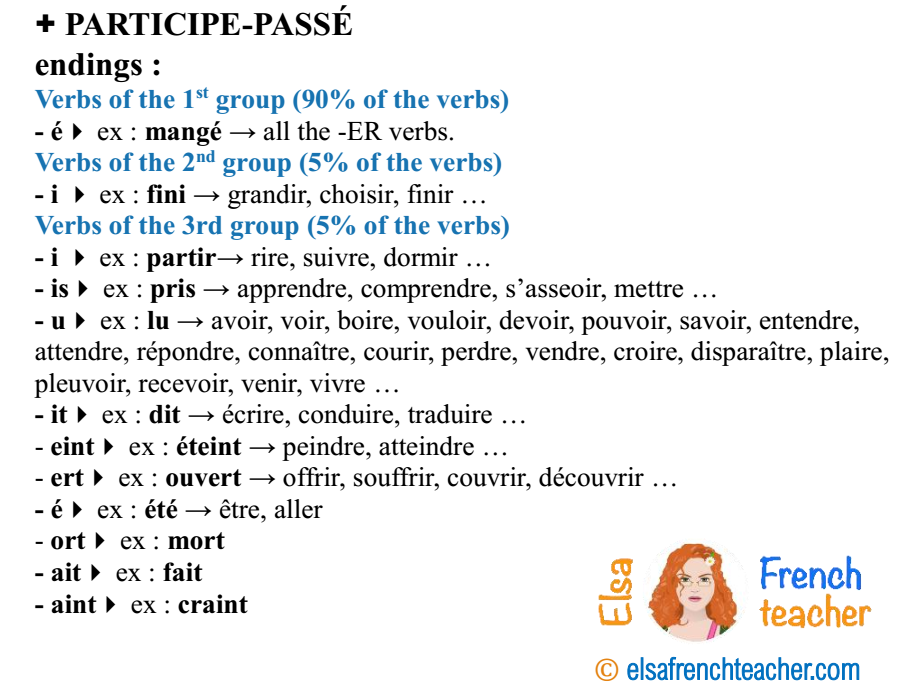
So when you learn a new verb, be curious to look at its past-participle form.
Do not worry, you will memorize very quickly the most common verbs.
3. Conclusion
There is still a lot to say about the passé-composé and I keep it for future videos. But today you have learned the basics.
You have learned that:
• there is an auxiliary and a past participle,
• we must memorize the list of verbs that conjugate with ETRE
• and that we must also memorize some past-participles of common verbs of the 3rd group, because they are irregular. All the others are regular.
[activecampaign form=11]

The shops in French
The shops in French
SHOPS IN FRENCH
Aujourd’hui on va visiter les magasins de la ville. Il y a plusieurs types de magasins et on va voir le vocabulaire qui correspond à chacun.
Attention « un magasin » VS « un magazine », ce sont deux mots différents !
Introduction
First let’s focus on two verbs : ALLER et VENIR
We’ve already studied these verbs when we talked about the countries but today it’s different (if you haven’t seen this video yet, it’s here.
You know that in French there are 2 prepositions we use a lot A (to) and DE (from).
TO GO TO : ALLER A « je vais à la boulangerie »
TO GO TO SOMEONE’s PLACE : ALLER CHEZ : « je vais chez toi demain »
TO COME FROM : VENIR DE : “ je viens de la boulangerie »
TO COME TO : VENIR A : “ Viens à la boulangerie avec moi »
Now that you’ve understood the prepositions, let’s take a look at the shops : les magasins, les commerces.
A la boulangerie-pâtisserie
A la boulangerie on achète du pain et des sandwichs.
A la pâtisserie on achète des gâteaux et des tartes.
I am using « on » in a general meaning: people buy bread.
A la boucherie-charcuterie
A la boucherie on achète de la viande.
A la charcuterie on achète des charcuteries.
The shops ending with “ie” are feminine, that’s why we say “à la “.
A la poissonnerie
A la poissonnerie on achète du poisson frais.
We can also say : Chez le poissonnier on achète du poisson frais.
Le poissonnier is the fishmonger.
A la pharmacie
A la pharmacie on achète des médicaments, des compléments alimentaires et des produits d’hygiène.
(dietary supplements and hygiene products)
A la librairie
A la librairie on achète des livres.
Another word for livre is “bouquins” : J’ai acheté un super bouquin.
A la bijouterie
A la bijouterie on achète des bijoux : des colliers, des bagues, des bracelets, des boucles d’oreilles etc.
Au marché
Au marché, en général, on achète des produits frais et locaux.
We say « au » because marché is a masculine word : je vais au marché.
Au supermarché
Au supermarché on achète des fruits, des légumes et pleins d’autres choses.
Au centre commercial
Il y a beaucoup de boutiques (stores) :
Des boutiques de vêtements et de chaussures par exemple.
For some shops, we don’t use the name of the store but the name of the professional who works in. So, in that case, as I told you before, we use “chez” as a preposition,
Je vais chez le fleuriste, le fleuriste vend des fleurs.
It’s the verb VENDRE (3d group)
Je vais chez le coiffeur, le coiffeur coupe les cheveux.
It’s the verb COUPER (1st groupe)
Je vais chez l’opticien, il vend des lunettes.
We use the masculine form of the professions as a general form. But you can use the feminine form if the person is a woman.
Example : la fleuriste, la coiffeuse, l’opticienne.
See my lesson about the professions here.
Voilà! La leçon est terminée. J’espère qu’elle vous a plus.
N’oubliez pas de vous inscrire à ma chaine YouTube.
A bientôt !
